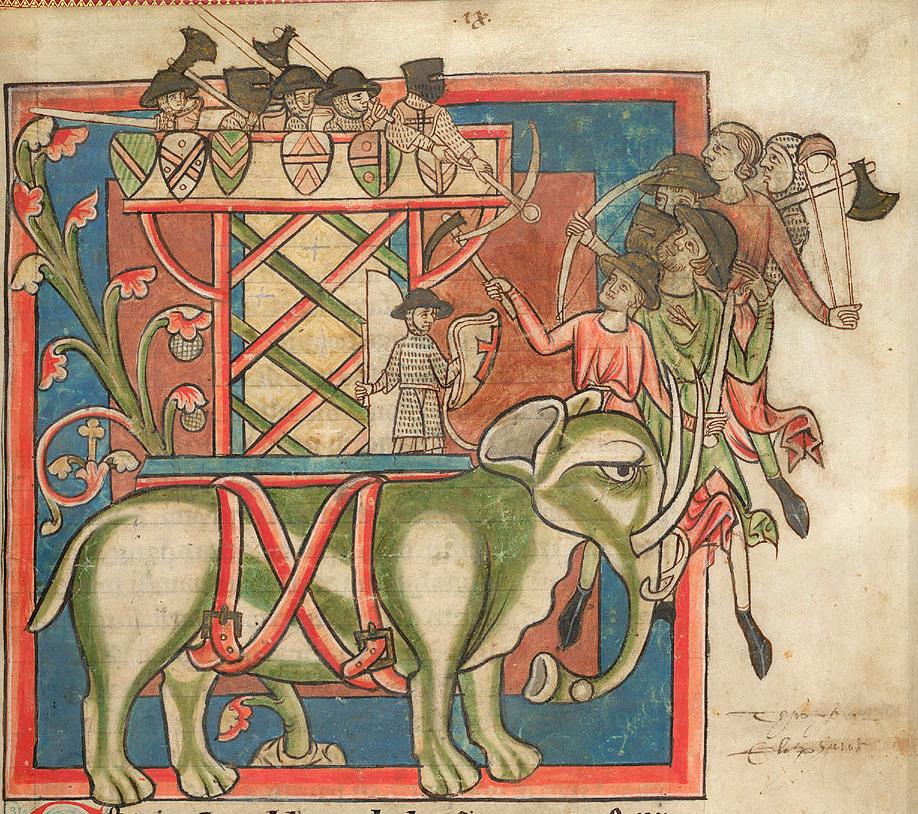
Amazon Audible Gift Memberships
A War Elephant in a Bestiary, 2nd quarter of the 13th century
British Library Harley MS 4751, England.



Title: Bestiary, with extracts from Giraldus Cambrensis on Irish birds Description: Miniature of an elephant with a wooden tower on its back, with soldiers with crossbows and other weapons, some of the soldiers in armour. Date: 2nd quarter of the 13th century Origin: England, S. (Salisbury?) Language: Latin Script: Gothic, written above top line Decoration: Numerous (106) miniatures in colours of animals. Large initial on a rectangular ground in colours (f. 1). Large initials in blue with red pen-flourishing, or in red with blue pen-flourishing. Rubrics in red. Dimensions in mm: 308 x 232 (205 x 140) Source: British Library Harley MS 4751
Referenced on p.74, Arms and Armour of the Crusading Era, 1050-1350, Western Europe and the Crusader States by David Nicolle
184 Bestiary, England, late 12th/early 13th centuries
(British Library, Ms. Harl 4751, f.8, London, England)
A little-known manuscript includes a clear illustration of the same kind of single eye-slit early great helm as is portrayed on Wells Cathedral. By now the crossbow has a loading stirrup and since the man presumably represents a humble crossbowman or sergeant he only has a mid-sleeved mail hauberk. The pattern on his chest is almost certainly a heraldic surcoat, but the possibility of it indicating the rivets of a cuirie or an early coat-of-plates cannot be ruled out.
WAR ELEPHANT FROM A MEDIEVAL BESTIARY
British Library, Harley MS 4751, f. 8, London
This fantastic image of an armed elephant, from about 1230–1240, shows many of the weapons of the thirteenth century. At the far right a man is shown with a sling loaded with stone shot, while other soldiers are armed with axes, longbows, and crossbows. There are a variety of different helmets, including the great helm, although most are of the simple, open kettle hat type. All are armed in mail armor, and the driver carries a triangular shield that covers his head and most of his torso. This illumination comes from a bestiary made in England, possibly Salisbury.
Source: p.260, Medieval Weapons: An Illustrated History of Their Impact by Kelly DeVries & Robert D. Smith (2007)